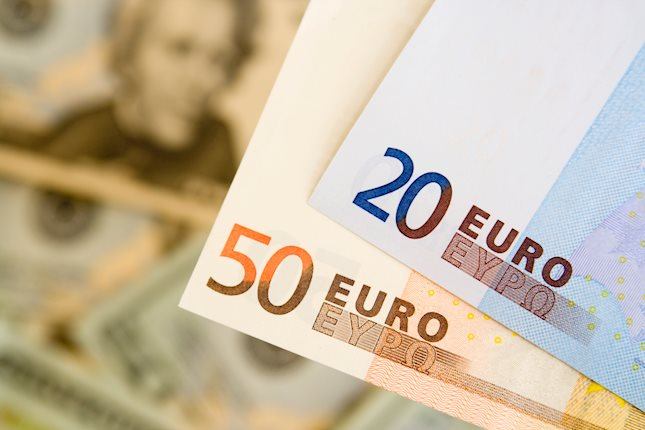Located between Europe and Asia, Turkey was once the epicenter of the vast Ottoman Empire that controlled much of the Middle East and even portions of the Balkans. After the First World War, with Turkey stripped of her empire, Mustafa Kemal Ataturk attempted to realign the non-Arab nation away from the rest of the Muslim world in favor of the West. This was a gigantic task, probably never attempted previously by any nation in history.
Following WWII, Turkey, with its location adjacent to Russia's soft underbelly, became a valuable NATO member. Despite its unquestioned loyalty, the European Union (EU) denied repeatedly Turkey's subsequent applications for membership. (The official reason for rejection was human rights: the real reason was the persistence of strong Islamic affiliation of its conservative population.)
Today, Turkey is re-emerging increasingly as a moderate, democratic Sunni Islamic state, but one that hankers after power as a regional heavyweight. Over the past decades its principal nemesis in the region has been the Assad regime in Syria. Anyone fighting Assad finds favor with the Turks.
Furthermore, Turkey has a politically significant Kurdish minority who, denied of a country by the British and French in 1919, seek secession from Turkey. Unfortunately, many of the Sunni Syrian rebels are Kurds who enjoy close relations with troublesome Kurdish separatist organizations within Turkey. Therefore, Turkey's President, Recep Tayyip Erdogan, likely sees the current war between ISIL and Kurds in a similar light to the manner in which Stalin viewed the German slaughter of the Polish elite in WWII.
In the winter of 1944/5, Polish freedom fighters, expecting strong support from Russians advancing from the east, rose up in Warsaw against the brutal German occupying force. However, with an eye towards weakening Polish resistance to postwar Soviet occupation, Stalin was happy to let the retreating Germans kill as many potential capitalist Poles as possible. Therefore, he held his armies back and allowed the Germans to conduct the dirty work.
It is highly likely that, in light of feckless leadership from the United States, Erdogan is tempted to allow ISIL to reduce his Kurdish problem. He knows that, with his own powerful army and the full NATO backing that his membership affords, the likelihood that ISIL can cross the border after taking Kobani (the border town now under siege) is remote. His delays in committing to the anti-ISIL cause may even win him concessions from Obama that allow for potential annexation of Syrian territory if and when the Assad regime falls.
It is tempting for Western observers to view Turkey's reluctance to join the fight as a mark of disloyalty to NATO and as a sign that the alliance is mostly about convenience. This view may be too simplistic.
Obama's embarrassing lack of will and his inability to prevail over Moscow, Syria, and the Ukraine has re-opened a Cold War dynamic that revives the strategic importance of Turkey and its air bases. It is likely, therefore, that eventually the U.S. will, even if only covertly, help Turkey in its struggle to gain influence over Syria, offering, as it will, greater security to Israel from the tightening Iranian Shiite noose. The U.S. is likely prepared to short-change the Kurds to achieve these objectives.
The complexity of the situation should remind us all how difficult it will become to create stability in an ungovernable region. That Saddam Hussein was able to keep the lid on the powder keg for so long is a testament to his brutality and efficiency. It is yet another reminder of the price we pay for offering simplistic solutions to complex problems.
General Risk Warning for stocks, cryptocurrencies, ETP, FX & CFD Trading. Investment assets are leveraged products. Trading related to foreign exchange, commodities, financial indices, stocks, ETP, cryptocurrencies, and other underlying variables carry a high level of risk and can result in the loss of all of your investment. As such, variable investments may not be appropriate for all investors. You should not invest money that you cannot afford to lose. Before deciding to trade, you should become aware of all the risks associated with trading, and seek advice from an independent and suitably licensed financial advisor. Under no circumstances shall Witbrew LLC and associates have any liability to any person or entity for (a) any loss or damage in whole or part caused by, resulting from, or relating to any transactions related to investment trading or (b) any direct, indirect, special, consequential or incidental damages whatsoever.
Recommended Content
Editors’ Picks

AUD/USD: The hunt for the 0.7000 hurdle
AUD/USD quickly left behind Wednesday’s strong pullback and rose markedly past the 0.6900 barrier on Thursday, boosted by news of fresh stimulus in China as well as renewed weakness in the US Dollar.

EUR/USD refocuses its attention to 1.1200 and above
Rising appetite for the risk-associated assets, the offered stance in the Greenback and Chinese stimulus all contributed to the resurgence of the upside momentum in EUR/USD, which managed to retest the 1.1190 zone on Thursday.

Gold holding at higher ground at around $2,670
Gold breaks to new high of $2,673 on Thursday. Falling interest rates globally, intensifying geopolitical conflicts and heightened Fed easing bets are the main factors.

Ethena Labs launches new UStb stablecoin backed by BlackRock's BUIDL token
Ethena Labs announced on Thursday that it has released a new stablecoin product, UStb. The new stablecoin will be fully collateralized by BlackRock's USD Institutional Digital Liquidity Fund and function similarly to a traditional stablecoin.

RBA widely expected to keep key interest rate unchanged amid persisting price pressures
The Reserve Bank of Australia is likely to continue bucking the trend adopted by major central banks of the dovish policy pivot, opting to maintain the policy for the seventh consecutive meeting on Tuesday.

Five best Forex brokers in 2024
VERIFIED Choosing the best Forex broker in 2024 requires careful consideration of certain essential factors. With the wide array of options available, it is crucial to find a broker that aligns with your trading style, experience level, and financial goals.